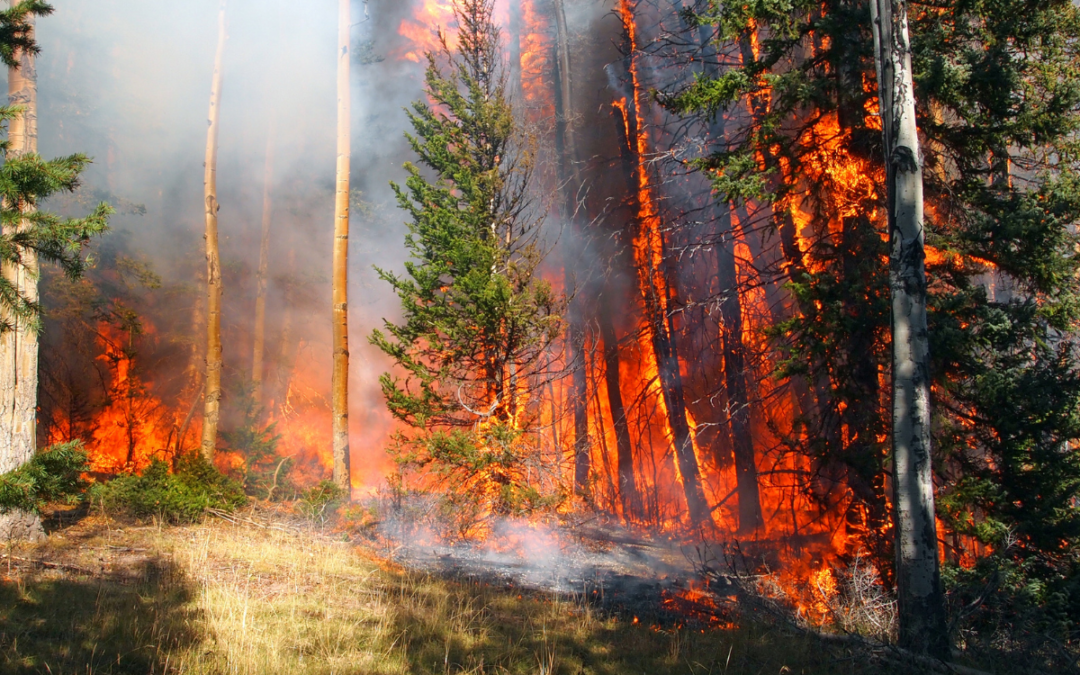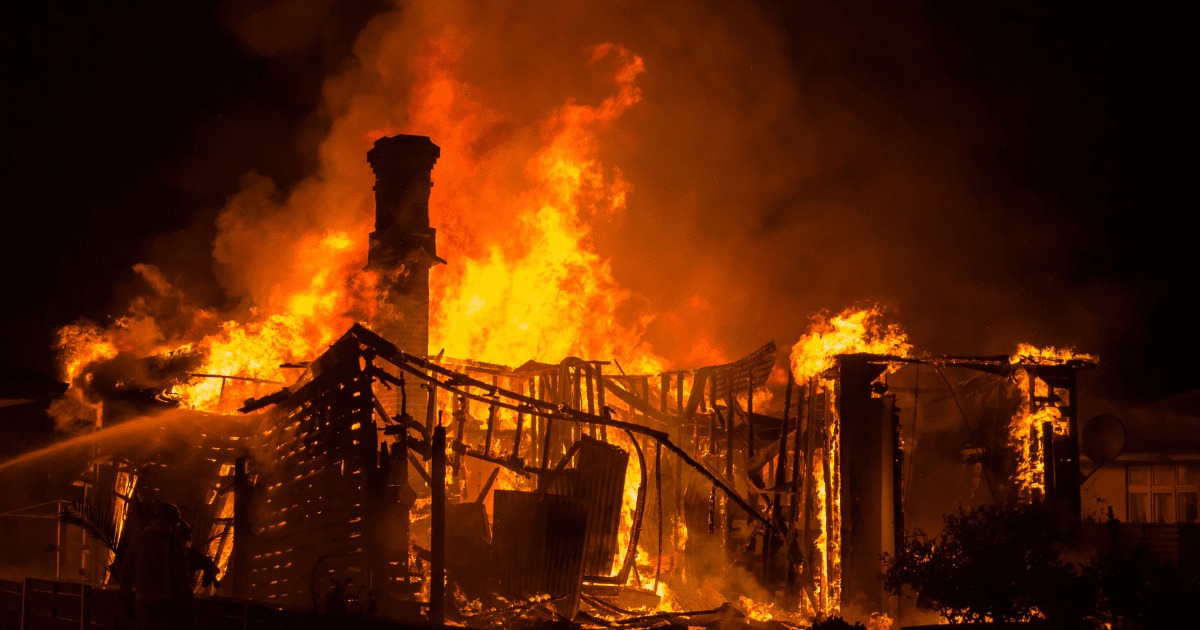While in attendance at the Wildfire Resiliency and Training Summit in Prince George, British Columbia, I learned a lot about the incredible people who protect our communities from wildfire risk and the barriers to wildfire protection of homes in at-risk areas.
By all academic, government and media accounts, 2024 is poised to be a record-breaking year for community impacts from wildfire.
The direct impact of property damage, the displacement of people, the government expenditure to respond and the impacts on the quality of life of people in our communities are stacking up to impact the availability of housing in all marketplaces affected by wildfire.
Homeowner investment in risk reduction — including your advice — matters more as wildfire risk increases
Nova Scotia was not perceived to be a location of considerable risk prior to 2023. Last year’s distribution of catastrophic wildfire losses there is as shocking as the intensity of the losses to Fort McMurray in 2017.
Managing wildfire risk in Canada has shifted from the responsibility of governments to the shared responsibility of all of society. As the risk increases, the role of homeowner investment in risk reduction becomes increasingly important. And how you advise your clients is an important component of that!
Impacts on realtor business conduct
For the realtor community, there are some very real impacts on business conduct.
One example is how insurability precedes lending — in other words, getting a mortgage is generally conditional on getting insurance. When an active wildfire is present in a location (within a 100 km radius), finding an insurer can be very difficult or impossible, as new policies aren’t typically issued while an active wildfire is in proximity to a property.
So, if you have a looming closing date and an active wildfire near the property, your deal and your client could be in trouble.
Protect your clients with wildfire clause in APS
The BCFSA has created a resource for B.C. realtors to follow to protect their clients from risk. Critical recommendations include writing offers (and signbacks) with a wildfire clause in the Agreement of Purchase and Sale (APS) for properties in proximity of potential wildfire.
In conversation with British Columbia Financial Services Authority (BCFSA) a/director of policy, Emily Shaw, about resources B.C. realtors can use to protect their clients (both buying and selling) from risk, she shares, “Licensees are experts, and part of (sharing) that expertise is to talk to clients, colleagues and insurers about these issues.
Buyer agents should be talking to their clients about the wildfire clause for use in transactions in wildfire-at-risk areas. This conversation can lead to additional conversations that are important. Wildfires are a reality in our marketplace.”
Recommended clause from BCFSA
If, as a result of a wildfire and despite the Buyer’s best efforts, the Buyer is unable to obtain fire insurance on the Property that is binding and effective as of the original Completion Date, on terms and at rates that are commercially reasonable, then the Buyer may, at their sole discretion, extend each of the Completion Date, the Adjustment Date and the Possession Date to a date that is the first day, other than a Saturday, Sunday or statutory holiday in British Columbia (“Business Day”) that is [30] calendar days after the original respective dates by providing written notice (the “Extension Notice”) to the Seller or the Seller’s agent at least [5] Business Days before the original Completion Date.
If during the period between the delivery of the Extension Notice and [5] Business Days before the extended Completion Date the Buyer obtains fire insurance on the Property that would allow the Buyer to complete the purchase and sale of the Property before the extended Completion Date, the Buyer will immediately provide written notice of same to the Seller or the Seller’s agent (the “Insurance Notice”) and the Seller may, by providing written notice to the Buyer or the Buyer’s agent within [2] Business Days after the Insurance Notice is provided, elect to accelerate the Completion Date to a date that is [5] Business Days after the Insurance Notice is provided, and the Adjustment Date and the Possession Date will be adjusted so that they will occur with the same relativity to the new extended Completion Date as they had to the original Completion Date.
The parties agree that time will remain of the essence.
Shaw notes that a licensee should recommend their client obtain legal advice regarding how triggering this clause may affect any related transactions that are closing on their original completion dates. She advises licensees to consider using this clause together with the Fire/Property Insurance condition precedent.
Other suggestions to help protect your clients
“Licensees who are in areas affected by wildfire should advise clients to have conversations with their insurer and to acquire a binding insurance commitment as soon as possible. If a home in transaction is damaged by wildfire, it’s important for licensees to advise their clients to seek legal advice at the earliest opportunity. These are very complex issues that are beyond the expertise of licensees to handle,” explains Shaw.
She insists that the most important action is to have active dialogue in your community, encouraging licensees to become acquainted with FireSmart recommendations for property risk reduction: “It’s important for registrants and homeowners to be informed. FireSmart BC has some excellent resources that licensees can share with clients.”
Encouraging fire-smart practices is an important, proactive opportunity for practitioners to help clients keep their families safe and their assets protected. There are plenty of videos and other content ideal for client communication from FireSmart Canada and other organizations. Use them to inform yourself of the risks to you and your clients.
This is an important and emergent issue that is affecting the industry and the businesses within it. We need to stay on top of it.
As an active back-country canoeist, I’m seeing the changes in the forest. Everywhere in Canada is changing. Seasonally, I personally observe the changes in the ecosystem. Coastal rainforests are being recategorized by geologists. The ferns in Ontario’s forests are getting crispy with drought in July. As the ecosystem evolves, the advice we give to clients also evolves. Wildfire will continue to impact the business of real estate in Canada, in all regions. It’s an important reputational knowledge category and a relevant errors and omissions discussion that realtors can have a very positive influence on.
It’s my strong suggestion that you explore these conversations in your in-office mastermind discussions and find a strategy that works in your marketplace and for your business.

Chris Chopik is an influential housing industry innovator and a respected authority working at the intersection of housing, energy, resiliency and natural hazards. Chopik’s work includes an extensive exploration of the future of “Property Value in an Era of Climate Change” (2019) where he examines the financial impact of natural hazards on property values across North America. He holds a Master of Design, Strategic Foresight and Innovation from OCAD University.
















It is good to witness individuals offering concrete advice for positive action in this industry that at times devoted comments to identifying problems without recommending some solution. This is good stuff.